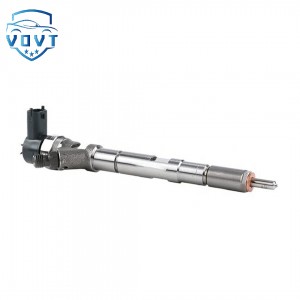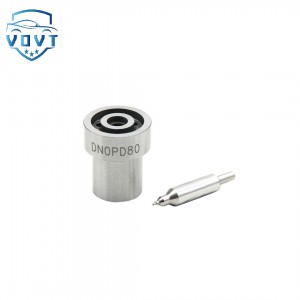High Quality Valve Plate 17# Orifice Plate for Injector 23670-0E070
products description
| Reference Code | 17# |
| MOQ | 5 PCS |
| Certification | ISO9001 |
| Place of Origin | China |
| Packaging | Neutral packing |
| Quality Control | 100% tested before shipment |
| Lead time | 7~10 working days |
| Payment | T/T, L/C, Paypal, Western Union, MoneyGram or as your requirement |
The introduction of injector
Fuel injectors play a vital role in diesel engines. It is mainly responsible for injecting fuel into the engine's combustion chamber with precise pressure, time and atomization. Through reasonable fuel injection control, it is ensured that fuel can be fully mixed with air, thereby achieving efficient combustion.
The fuel injector can accurately adjust the amount and timing of fuel injection according to different operating conditions of the engine, such as speed, load, etc. Inject fuel quickly at startup to ensure smooth ignition; increase the amount of fuel injection at high loads to provide sufficient power; reduce the amount of fuel injection at low loads to save fuel. Good fuel injector performance helps improve the engine's power, economy and emissions performance. It can make combustion more complete, reduce pollutant emissions caused by incomplete combustion, and also allow the engine to output more powerful power. In addition, precise control of fuel injectors can also reduce fuel consumption and improve fuel utilization. Different types and specifications of injectors adapt to various engine designs and application requirements, and together ensure the stable and reliable operation of the engine.
Common fuel injector failures mainly include the following:
Poor atomization: As a result, the fuel cannot be atomized well, affecting combustion efficiency, which may cause engine power to decrease, fuel consumption to increase, and emissions to deteriorate.
Dripping: Fuel continuously drips from the injector, which will cause the mixture to be too rich, causing the engine to run unstable, shake, and even start difficultly.
Clogging: Impurities and other substances may clog the injection holes or internal channels of the injector, resulting in reduced fuel injection or even no fuel injection, causing problems such as insufficient engine power and cylinder shortage.
Abnormal fuel injection pressure: Too high or too low pressure will affect the fuel injection effect, leading to insufficient combustion or poor power performance.
Solenoid coil failure: such as coil short circuit, open circuit, etc., will cause the injector to fail to work properly.
Stuck valve needle: It may prevent the fuel injector from opening or closing normally, thus affecting the normal progress of fuel injection.























